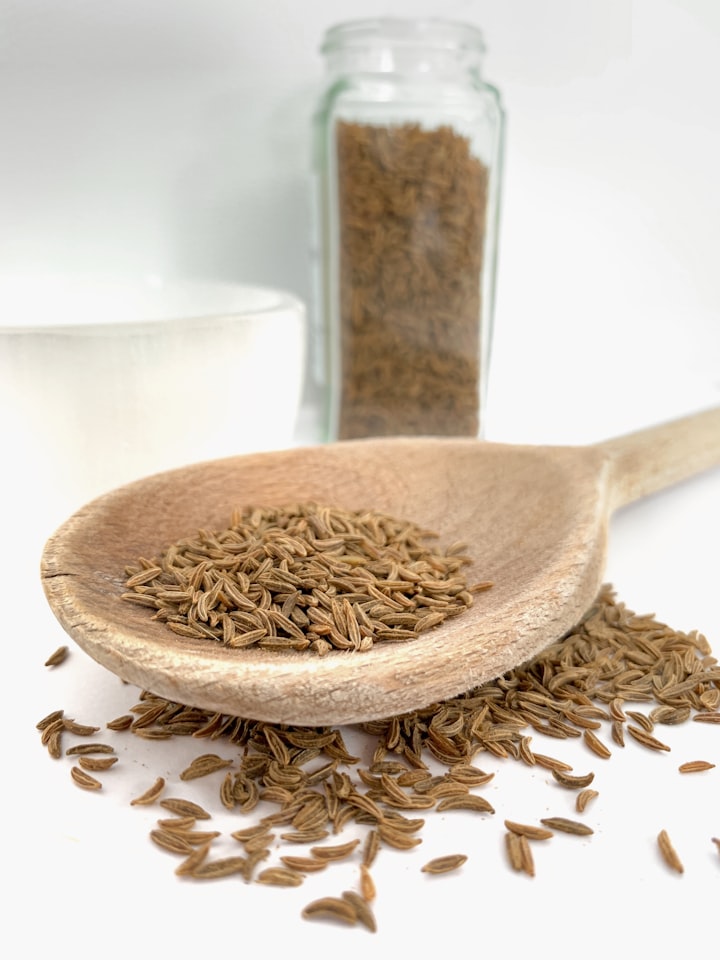
Fennel is a traditional medicinal herb that has been used for centuries by cultures around the world. With its sweet, liquorice-like aroma and flavour, fennel is much more than just a culinary spice - it also boasts many health benefits. Ayurvedic medicine has long recognized the medicinal uses of fennel seeds, especially for digestive issues. Fennel offers numerous potential health benefits, from promoting healthy digestion to regulating blood sugar levels.
Fennel for Healing
Fennel, a flavorful and aromatic herb, has been used in traditional medicine for centuries. It is known for its numerous health benefits that range from aiding digestion to boosting the immune system. Fennel contains anethole, which gives it anti-inflammatory and antibacterial properties, making it a great remedy for various ailments.
One of the most significant benefits of fennel is its ability to promote healthy digestion. The herb helps reduce bloating, gas, and constipation by relaxing the muscles in the digestive tract. Additionally, fennel can help prevent stomach ulcers by reducing inflammation caused by Helicobacter pylori bacteria.
Fennel also acts as a natural pain reliever due to its anti-inflammatory properties. It can be used to ease menstrual cramps and joint pain caused by conditions such as arthritis. In addition, fennel tea can soothe sore throats and coughs while improving respiratory health overall. Overall incorporating fennel into your diet or using it as a supplement may have multiple healing effects on your body's overall health and wellness routine!
Digestive Aid
Fennel is an herb that has been used for centuries as a digestive aid. Fennel seeds are often consumed after meals to help with digestion and relieve bloating and gas. The oils in fennel seeds have antispasmodic effects on the muscles of the digestive tract, which can help to reduce discomfort and improve overall digestion.
In addition to its digestive benefits, fennel has also been shown to have anti-inflammatory properties. This makes it a particularly useful herb for those suffering from inflammatory bowel disease or other gastrointestinal conditions. Fennel can help to soothe the lining of the digestive tract, reducing inflammation and improving overall gut health.
Overall, incorporating fennel into your diet can be a simple way to support healthy digestion and improve your overall gut health. Whether you choose to consume it in seed form or incorporate fresh fennel bulb into your meals, this versatile herb offers numerous benefits for both your digestive system and overall health.
Anti-Inflammatory
Fennel is not only a flavorful herb that adds depth to many dishes, but it also has some surprising health benefits. One of the most notable benefits is its anti-inflammatory properties. Fennel contains powerful antioxidants and phytonutrients that help reduce inflammation in the body, which can lead to a host of health issues such as chronic pain, arthritis, and even cancer.
Studies have shown that fennel can help alleviate symptoms associated with irritable bowel syndrome (IBS) due to its anti-inflammatory properties. It can also aid in digestion by reducing inflammation in the gut and promoting healthy bacteria growth. Additionally, fennel can be used topically as an anti-inflammatory agent for skin irritations such as insect bites or rashes.
Incorporating fennel into your diet is easy and delicious. You can add it to salads or roasted vegetable dishes for a burst of flavor and health benefits. Alternatively, you can steep fennel seeds in hot water for a soothing tea that aids in digestion and reduces inflammation throughout the body. With all these benefits, there's no reason not to add some more fennel into your life!
Anti-Cancer Properties
Fennel is a herb that belongs to the carrot family and is used for its medicinal properties in various cuisines. The surprising benefits of fennel for healing are many, one of which includes its anti-cancer properties. Fennel contains anethole, which has been found to have anti-inflammatory and anti-carcinogenic effects on the body.
Anethole works by inhibiting the growth of cancer cells in vitro and reducing oxidative stress in vivo. Additionally, fennel has high levels of antioxidants such as flavonoids and phenolic compounds that help protect cells from damage caused by free radicals. These antioxidants also promote apoptosis (programmed cell death) in cancer cells, preventing them from spreading throughout the body.
Overall, incorporating fennel into your diet can be a beneficial way to reduce your risk of developing cancer or slowing its progression if you already have it. It is always important to consult with a healthcare professional before making any significant changes to your diet when managing health conditions like cancer or other chronic illnesses.
Skin Benefits
Fennel is not just a flavorful herb, but it also has numerous benefits for skin health. Fennel seed oil is known to have antioxidant properties that can help protect the skin from harmful UV rays and free radicals that cause premature aging. It also helps to soothe irritated skin and reduce inflammation caused by conditions such as eczema, psoriasis or acne.
The essential oils found in fennel seeds are also used in many skincare products due to their natural cleansing properties. They can help to unclog pores, remove excess oil and dirt from the skin's surface, and improve overall skin texture. Additionally, fennel seed extract contains high levels of vitamin C which promotes collagen production - an essential protein for maintaining youthful-looking skin.
Incorporating fennel into your skincare routine can provide numerous benefits for your complexion. Whether you choose to use it topically or incorporate it into your diet, this versatile herb has much to offer when it comes to supporting healthy skin – making it a must-try ingredient!
Treats Anemia
Did you know that fennel has been traditionally used to treat anemia? This is because it contains high amounts of iron, which plays a key role in the production of hemoglobin. Hemoglobin is a protein found in red blood cells that helps transport oxygen throughout the body. When there is not enough iron in the body, the production of hemoglobin is decreased and can lead to anemia.
In addition to its iron content, fennel also contains vitamin C which aids in the absorption of iron by the body. This makes it an ideal food for those who are looking for natural ways to boost their iron levels without relying on supplements or medication.
To reap the benefits of fennel for treating anemia, incorporate it into your diet regularly. You can use fresh fennel bulbs as a salad ingredient or roast them with other vegetables for a tasty side dish. Fennel seeds can also be used as a spice when cooking meats or added to teas as a natural remedy for digestive issues.
Boosts Immunity
Fennel is a powerhouse of nutrients that can help boost immunity. It contains vitamins, minerals, and antioxidants that can strengthen the body's defenses against infections and diseases. The high vitamin C content in fennel helps to stimulate the production of white blood cells which are essential for fighting off infections.
Additionally, fennel is rich in flavonoids like quercetin and kaempferol which have been shown to have anti-inflammatory properties. Chronic inflammation can weaken the immune system and make it more susceptible to infection. Fennel also has antimicrobial properties that help to fight off harmful bacteria, viruses, and fungi.
Finally, fennel is an excellent source of dietary fiber which supports gut health by promoting the growth of beneficial gut bacteria. A healthy gut microbiome plays a crucial role in supporting immunity since most immune cells reside in the gut lining. Overall, incorporating fennel into your diet can be an effective way to naturally boost your immunity and protect your body from various illnesses.
In conclusion, fennel is an incredibly useful and versatile plant with a wide range of medicinal applications. From helping to reduce inflammation, digestion issues, and cardiovascular health to providing relief from menstrual cramps and optimizing hormonal balance, the benefits of fennel are undeniable. Fennel can be taken in various forms including teas, tinctures, capsules and even ground seeds. Incorporating fennel into one's daily routine is a great way to take advantage of its healing abilities.
About the Creator
Charlin S
I'm a professional blog writer with over 10 years of experience in the field of content marketing. I specialize in creating engaging, informative, and SEO-friendly content for a variety of topics.





Comments
There are no comments for this story
Be the first to respond and start the conversation.